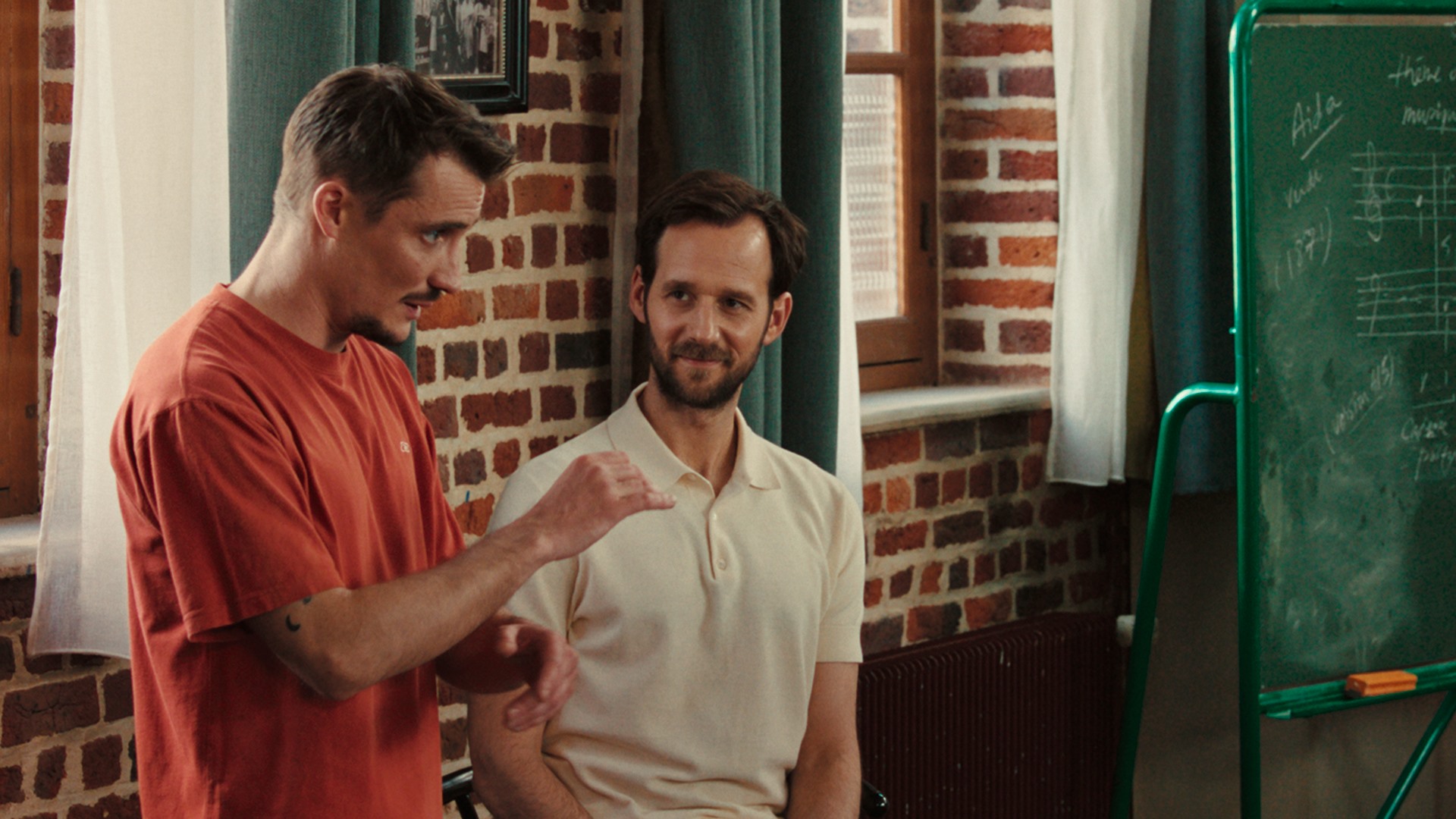In Emmanuel Courcol’s drama The Marching Band (En Fanfare in French, and also released as My Brother's Band), a struggling community band in a mining town in northern French has fallen on hard times. Elements of déjà vu, perhaps?
Certainly, if you're from Northern England. But rather than the romance of Mark Herman’s Brassed Off (1996), The Marching Band focuses on the relationship between two brothers (main picture).
One, from the high end of metropolitan culture, is orchestral conductor Thibaut Désormeaux (Benjamin Lavernhe). The other, from the hard slog of life in the dour surroundings of Hauts-de-France, is trombonist Jimmy Lecocq (Pierre Lottin, superb recently in François Ozon’s When Autumn Falls). The two are on great form and interact well. It is the brothers' evolving relationship that carries the film.
The unlikely pair – separated at birth, each not knowing that the other existed – has been brought together by Thibaut’s sudden need for a bone marrow transplant. Sudden is the word: he collapses to the floor in mid-flow as he conducts a rehearsal of Beethoven’s Egmont overture, three minutes into the film.
Director Courcol has had success at the French box-office with this “feelgood with tears” film, and it has been nominated for seven César awards. It plays to interests of his that have had airings before. The juxtaposition of high culture and social realism was also present in Courcol’s The Big Hit (2020; Un Triomphe), in which prison inmates were let out to perform Waiting for Godot. Courcol says he's fascinated by the collision of true professionalism and good-natured amateurs "giving-it-a-go": “What I like above all is to reconcile opposites and find a form of compromise or balance.”
There is a touching scene in The Marching Band when Jimmy has a go at the blind audition for a position as a professional orchestral trombonist, not realising how high the expected standard is. There are also charming moments when Thibaut sets about trying to teach Jimmy how to conduct an orchestra, posing the question whether close relations teaching each other anything can ever be unproblematic (Pictured below: Pierre Lottin and Benjamin Lavernhe).
Having noted a particularly fine performance in The Big Hit from Marina Hands, a stalwart and fully recognized "sociétaire" of the Comédie-Française, I was pleased to spot a return to the big screen after a long absence by her mother, Ludmila Mikaël, an actor who captivated French audiences and was an unassailable star of the theatre from the 1960s to the 1980s. Here, she plays Thibaut's mother, and the calm way she deals with a barrage of feelings from him is a masterclass, bringing back memories of her greatness.

If Jimmy is prone to fits of righteous, hot-headed fury that makes his fists fly, it must be something in the water in this part of the world. As I watched him losing his temper and lashing out, I couldn’t help thinking the scene was quoting the fight between the rival pit men Chaval and Étienne in Émile Zola’s classic novel Germinal, set in the same mining region as The Marching Band.
This twist highlights the film’s main weakness. Courcol set up the fascinating situation, the context, and the playground in which the characters co-exist, a space for social commentrary and the recognition of the value of art – where professional classical musicians and amateur community bands both have their place. Then he needed to push forward the narrative with realistic plot developments
Unfortunately, these moments sometimes feel far-fetched, contrived to say the least, and even occasionally borrowed. The sad melodramatic turn the story takes in the last 10 minutes feels like a particularly awkward roll of the dice. And it seems almost forgotten when the film reaches its Brassed Off-like ending, in which music triumphs over everything (in this case with Elgar switched for Ravel).
The Marching Band is flawed, then, but the deepening friendship between Thibaut and Jimmy makes it a compelling watch. nonetheless.















Add comment